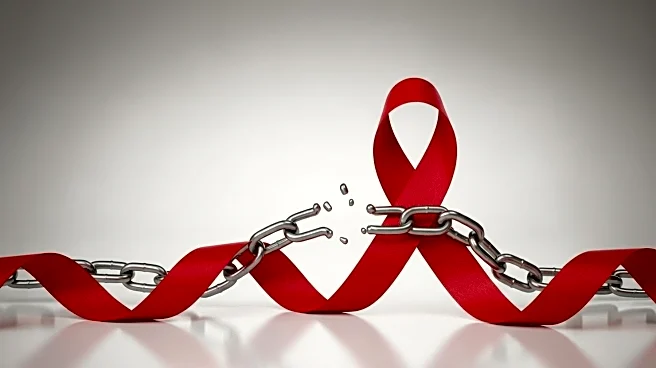What's Happening?
Recent protests in Kenya have highlighted the impact of reduced U.S. funding on HIV interventions, particularly affecting organizations like Mildmay Kenya. The funding cuts have led to shortages in antiretroviral drugs and condoms, crucial for serodiscordant couples where one partner is HIV positive and the other is negative. The Trump administration's foreign aid reductions have exacerbated these shortages, causing anxiety among affected couples who rely on these resources to prevent HIV transmission. Mildmay Kenya, which previously received U.S. support, has had to halt many services due to the funding gap, leaving couples uncertain about their future health and safety.
Why It's Important?
The reduction in U.S. aid for HIV interventions in Kenya poses significant risks to public health, particularly for serodiscordant couples who depend on antiretroviral drugs and condoms to manage their health. The funding cuts could lead to increased HIV transmission rates, affecting not only individual health but also public health systems. The situation underscores the critical role of international aid in supporting health initiatives in developing countries and highlights the potential consequences of policy changes in donor countries like the U.S. The affected communities face heightened health risks and uncertainty, emphasizing the need for alternative funding solutions.
What's Next?
The Kenyan government and health organizations may need to seek alternative funding sources to fill the gap left by U.S. aid cuts. This could involve increased reliance on other international donors or reallocating domestic resources to ensure continued support for HIV interventions. The situation may also prompt advocacy efforts to restore or increase foreign aid from the U.S. and other countries. Additionally, affected communities and health organizations might explore integrating HIV care into broader healthcare services to mitigate the impact of funding shortages.










